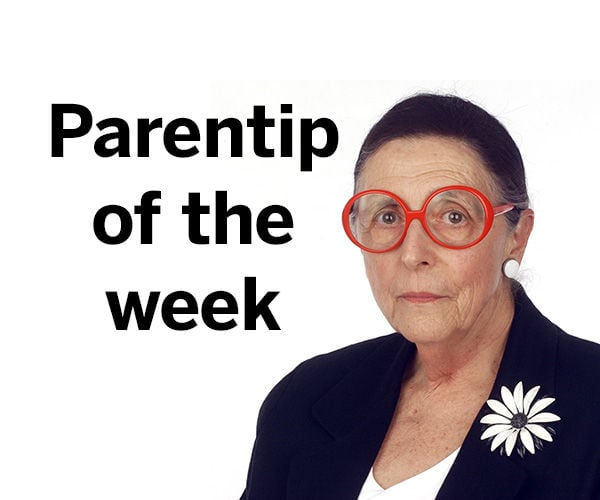‘Mom — Joshua has been pretty good for several months but tonight he had a total meltdown tantrum, screaming, throwing himself on the floor, completely out of control. I wanted to hold him and calm him down. Veronica said we should ignore him. Who is right?” (Your columnist knows Joshua is 32 months old because he is her grandson.)
Parents confronted with an out-of-control toddler have three tasks. 1) Take care of the immediate crisis. 2) Do detective work to determine why the meltdown occurred. 3) Devise a prevention plan.
Just to point out that answering questions from parents isn’t always an easy job, I told my son and daughter-in-law, “You are both right. Sometimes holding and calming is the appropriate action and sometimes it is wise to ignore the behavior.”
When a total meltdown occurs, parents have to make a split-second crisis management decision. No time to talk over the philosophical merits of calming versus ignoring. Safety first. Do whatever you have to do to prevent the child from injuring himself. Sometimes grabbing a blanket and lying down next to the child can turn a meltdown into a cuddle.
And while protecting the child (and yourself) from injury remember that the louder the kid screams and kicks, the calmer and quieter the parents must become.
Calming down a tantrumming child is actually the treatment of choice. But unfortunately this means parents have to ignore the first commandment of discipline: Do not reward bad behavior. If every time your child tantrums he gets undivided parental attention he might think, “What fun this is! All I have to do is scream and kick and I get whatever I want!”
Calm the child when you must, or when your gut tells you your child needs calming. When on the other hand you feel this is behavior-to-get-what-I-want, quietly say, “Joshua, you cannot play with Dad’s guitar, it’s not a toy.” Take away the guitar, leave the room, ignore the tantrum.
Good detective work starts with observation. Because tantrums are often preceded by cranky behavior, figure out what causes crankiness in your child. The usual culprits are fatigue, hunger, asking too much of the child before he is developmentally ready, and some bodily ailment such as an earache.
Think about what causes your own meltdowns. All of us get angry, sometimes so angry we lose it. Life inevitably brings frustration, and parents cannot provide their child with a frustration-free life.
However, parents can and must help children find ways of dealing with frustration. Tantrums begin to diminish as children master language. Joshua has an amazing vocabulary for his age. But children have to be taught to recognize and understand feelings. This is harder than naming objects or learning colors because feelings are both abstract and personal. None of us knows what another is feeling unless we are told.
Give your child words to express feelings. “Joshua, you are angry because Dad took the guitar away. Let’s go play with your toy guitar or drum. When you are bigger would you like a real guitar of your own?”
Ask the child “what are you feeling now?” questions when it is obvious he is upset. And try to verbalize your own feelings. “Mommy is angry because the dog got into the garbage and made a mess. I feel like screaming but if you help me clean up I won’t feel that way anymore.”
Your prevention plan will include avoiding fatigue and hunger and running a non-chaotic household. Keep your house as quiet and calm as possible. Kids pick up on frantic rushing. Might it be easier to set the alarm earlier?
Finally, don’t teach your child how to tantrum. My slogan for busy parents: “Before you explode or drop, stop!” Better your child sees how you avoid a tantrum than watch you have one.





